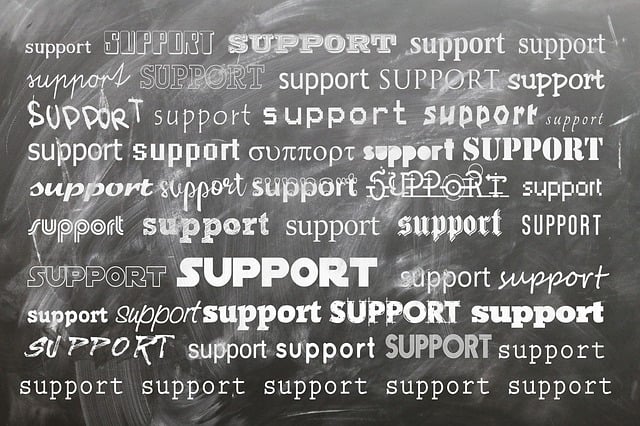Oregon's child welfare laws prioritize at-risk children's protection and rights through mandatory reporting, swift interventions, and individual financial eligibility determinations for legal aid. Public Defenders and specialized legal organizations offer critical child welfare legal aid, advocating for parents' and children's rights throughout investigations, court proceedings, and appeals. Post-case management ensures family resilience and meets removed children's needs with diverse community resources and legal guidance.
“In Oregon, understanding the legal framework surrounding child welfare is paramount for safeguarding the rights of both children and their families. This comprehensive guide delves into the intricate details of the state’s child welfare laws, clarifying key provisions and eligibility criteria for vital legal aid services. We explore the critical role of public defenders, court involvement procedures, support systems for parents, and post-case management strategies. By navigating these aspects, individuals can better prepare and protect themselves within Oregon’s child protection system, ensuring a more favorable outcome.”
- Oregon Child Welfare Laws: Overview and Key Provisions
- Eligibility Criteria for Legal Aid in Child Welfare Cases
- Roles of Public Defenders in Oregon's Child Protection System
- Navigating Court Involvement: Rights and Procedures
- Support Services for Parents Facing Child Welfare Actions
- Building Resilience: Post-Case Management and Community Resources
Oregon Child Welfare Laws: Overview and Key Provisions

Oregon’s child welfare laws are designed to protect and nurture at-risk children while ensuring their fundamental rights. Key provisions include mandatory reporting of suspected abuse or neglect, with individuals witnessing or knowing about such incidents encouraged to come forward. The state also mandates that children involved in welfare cases have access to legal representation, underscoring the importance of child welfare legal aid. This support is crucial for navigating complex legal processes and advocating for the best interests of the child.
Oregon’s laws further emphasize the need for timely interventions, with procedures in place to ensure swift assessments and decisions regarding a child’s safety and future placement. These provisions reflect a comprehensive approach to child welfare legal aid, focusing on prevention, support, and long-term well-being for Oregon’s most vulnerable youth.
Eligibility Criteria for Legal Aid in Child Welfare Cases

In Oregon, eligibility for legal aid in child welfare cases is determined by a combination of factors, primarily focused on income and family size. Individuals or families seeking assistance must meet specific financial criteria to qualify. The state’s Legal Aid Services typically consider a case-by-case basis, evaluating household income against established guidelines. These guidelines ensure that limited resources are allocated efficiently to those most in need.
Eligible applicants for child welfare legal aid often include low-income parents or guardians who face complex issues within the child welfare system. This may include situations where a child has been removed from their care due to neglect, abuse, or other concerns. Legal aid organizations offer critical support by providing free or low-cost legal representation, ensuring that affected parties have access to competent counsel throughout the process.
Roles of Public Defenders in Oregon's Child Protection System

In Oregon’s child protection system, Public Defenders play a pivotal role in ensuring fair representation for families involved in child welfare cases. These lawyers are integral to the process, offering legal advice and support to parents or guardians who face potential removal of their children. Their primary duty is to advocate for the rights of both the family and the child, navigating complex legal procedures and complexities within the system.
Oregon’s Public Defenders specialize in child welfare law, providing specialized knowledge and skills to defend against allegations of neglect or abuse. They offer crucial assistance during investigations, court proceedings, and appeals, ensuring that families understand their rights and options. This support is vital for families who may be overwhelmed by the legal process, aiming to protect their parental rights while safeguarding the well-being of their children.
Navigating Court Involvement: Rights and Procedures

Navigating court involvement in Oregon child welfare cases is a complex process, but understanding your rights and procedures can help ensure a fair outcome for all involved. If a child is deemed at risk or removed from their home, they may be placed into protective custody, leading to court proceedings. This often involves a hearing where the judge decides whether the child should remain in state care or if they can safely return home with improved conditions.
Parents or guardians have the right to legal representation during these hearings and can seek child welfare legal aid to help them navigate the system. This support is crucial, as it ensures their voices are heard and their rights protected. The court will consider factors like the child’s safety, well-being, and best interests when making decisions, and having legal guidance can significantly impact the outcome of these critical cases.
Support Services for Parents Facing Child Welfare Actions

Parents facing child welfare actions in Oregon can access a range of support services designed to help them navigate the complex legal system and protect their parental rights. Legal aid organizations, such as the Oregon Law Center for the Homeless and the Juvenile Law Project, offer free or low-cost legal assistance to eligible families. These services include counseling, representation in court proceedings, and advocacy for specific needs like housing stability and mental health support.
Additionally, community-based organizations provide valuable resources, including parent education programs, mentorship, and social services that complement legal aid. Organizations like the Oregon Chapter of the National Alliance on Mental Illness (NAMI) offer support groups and educational workshops tailored to parents’ unique challenges. Understanding their rights and connecting with these support networks can empower parents to effectively participate in child welfare proceedings and work towards positive outcomes for their families.
Building Resilience: Post-Case Management and Community Resources

After a child is removed from their home due to concerns about safety or well-being, the focus shifts to post-case management and building resilience within the family. This critical phase aims to ensure that the child’s needs are met and that the family receives ongoing support as they reintegrate and heal. Oregon offers various community resources and legal aid programs designed to assist families navigating this challenging period.
Legal aid organizations play a vital role in providing guidance and representation to parents involved in child welfare cases. They offer free or low-cost legal services, helping families understand their rights, negotiate case plans, and advocate for the best interests of their children. These resources empower parents to actively participate in decision-making processes, ensuring their voices are heard throughout the child welfare system.
